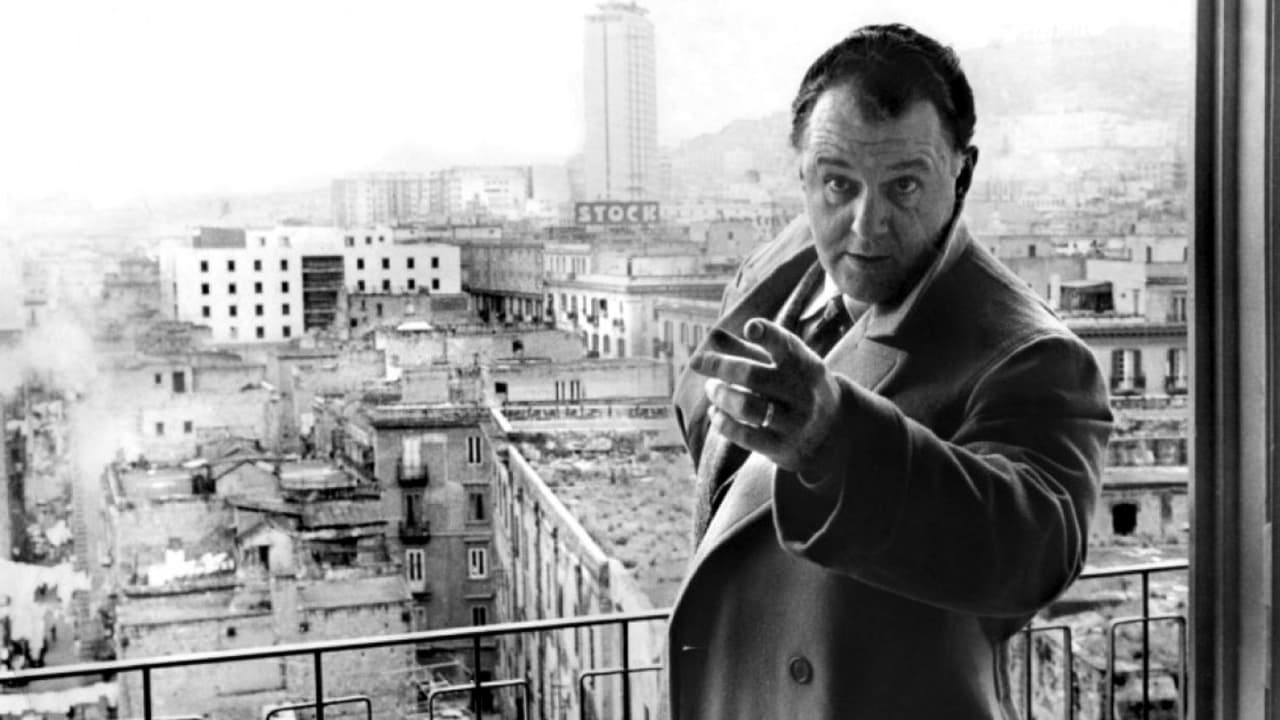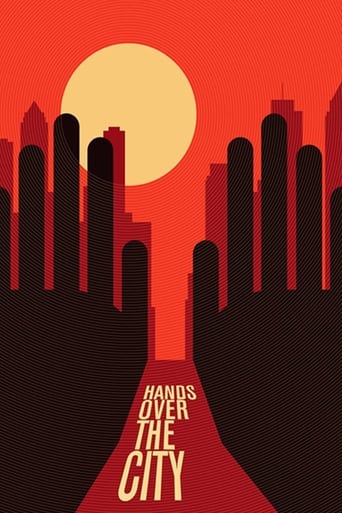

Set in 1963 Naples, Hands Over the City is a serious depiction of the corruption, nepotism and social issues of post war reconstruction. Italy in the early 1960s was barely a developed nation. Like most European participants of World War Two, Italy was left devastated by six years of conflict ending in 1945. The movie's plot revolves around an investigation of a building collapse resulting in several fatalities. The story plays out in the backdrop of local elections which may affect vested political interests dole out land development contracts to cronies. By shedding light on back room political dealings, the film exposes the shortcomings of democracy in developing states. Additionally, the raw power of wealth in (literally) buying votes amongst a poor electorate (think India, etc.) is laid bare during the movie. In such a corrupt environment geared to enhancing the wealth and influence of existing power brokers it is not surprising ordinary people turned to Socialist and even Communist politics. Indeed, Italy's Communist and Socialist parties regularly won 33% or more of the popular vote until the 1980s. (Both parties were independent of policies emanating from Moscow.) Though one may criticize the movie's pace, the story unfolds well enough to watch. The characters are realistic with the black and white filming adding to the effect of watching a sordid drama unfolding in seedy, smoky backrooms. The cinematography, especially in the opening scenes of Naples cityscape, is excellent. Hands Over the City is a social statement film more than an entertainment piece.
... View MoreThe first quarter of an hour of this film is completely mesmerising as we see a series of overhead shots of the different sides to the city of Naples and then the incredibly shot building collapse. At the same time we are made aware of the corruption in the building industry and how most of the money ends up in the same place all the time. Rod Steiger plays the main villain of the peace and it is an extraordinary performance. For considerable periods we simply see him prancing about his office, clearly struggling to think of the best way out of the immediate problem, the best way to get more political power and the best way for him and his son to stay on top. he expresses so much, and in such an Italian way, the pressures his constant messing with peoples' lives brings him. There are many fine sequences as the various political factions gang up and then get bought off as the big man inevitably gets his way. I preferred the slightly more fictionalised and later Three Brothers and Illustrious Corpses but this near documentary impression of Italy's boom building phase is very impressive and involving.
... View MoreThis Golden Lion-winning political drama, helmed by ambitious journalistic Italian filmmaker Francesco Rosi, makes a performance of a pursuit, a miscarried pursuit, but informative nonetheless for the inside scoop it wagers before us. The investigators are members of the Naples City Council, who are grindingly provoked by the collapse of a building in a congested blue-collar back street. Did the building wreck, with some tragic results, due to hazardous construction at a neighboring site? Most of the council is willing to draw the line of their inquiry at this particular question, having already settled that the answer is no.Initially, the sole proponent for further examination is convinced that the root cause is one of everyday profiteering, as personified by Rod Steiger's council member and real estate developer named Nottola. His right-wing party commands the government, which governs the city's construction and planning offices, which permit Nottola charge of whatever development he favors. The gluttonous profits come full circle to the right-wing party. With an election coming up, the noble sole proponent is fixed on fracturing this cycle by exposing it, yet in doing so he is exposed to infuriating bureaucracy. In reality, he is played not by a professional actor but a member of the city council and secretary of the chamber of commerce.Fermariello's good guy appears more emotionally decipherable than Steiger's Nottola, who in spite of being the axial character is cold and unapproachable in most scenes. Nottola disappears for extensive segments of the movie. His son, the engineer at fault for the building disaster, evaporates for the entire film after one small and obscure appearance. The film is quite reminiscent of the much more recent film There Will Be Blood by Paul Thomas Anderson, and with a very similarly remote main character. As for Nottola's feelings for his son, they never surface at any point. At the moment when Nottola faces the urgency to choose between his son or his business concerns, Rosi denies even a suggestion of his internal life. While Nottola remains silent and ponderous, Rosi's camera ranges his nondescript office and juxtaposes him with the window's view of the darkened city, for almost three full minutes, as the disonant musical score awakes in a sother of brass, shapelessly building like a migraine before it's shattered by a menacing jazz wallop.Pay close attention to the first few scenes of this eager sociological parable. While this succession economically summarizes the era's Neapolitan chain of graft, there are lush leaps in framing and scope like when we see Nottola's hands in close-up against the outlying background, high-reaching overhead purviews first of an architectural facsimile and then of the real city, abrupt cuts that jar you in and out of runaway and overlapping dialogues, and curt pauses during which you read the faces of an "industriopolitical" (my word) mass. This sequence of jarrings delves into how Rosi gets away with his conversational portrayal, half council-chamber public speaking and the other half clandestine political scheming. While the dialogue by itself would be a courtroom-like chore, Rosi's stylistic visual appeal keeps one enthralled.So the circle of the film closes, and the camera cranks back through the city council chamber, and then you see the same high-flying aerial shots as at the beginning. And yet, although Rosi appears to be suggesting a sort of sighing and giving up, a point of view not so irrational when one sees how far beyond Naples this perpetuated cycle of underhanded government puppeteering remains several decades later, the stylized realism of this, what I call an everyday disaster movie, leaves you feeling resilient and energized.
... View MoreGood inquiry movie, talking about the "roaring" '60 when every builder wanted to get richer and richer, basing his success on poor people's needs. It's a constant in Rosi's movies this political touch, but it's not about complaining about one party or the other, but it's more subtly focused on a certain italian laissez-faire in political matters and in social affairs that in some way is still alive today.Its way of leaving a great space to dialogues and to silent scenes around the city contributes to create a journalistic approach and the witty speeches give the movie an interesting touch.Well assembled, quite involving, an interesting piece about how power tends to contribute to its power only.Also an essential view on the 60s and italian postwar society.
... View More